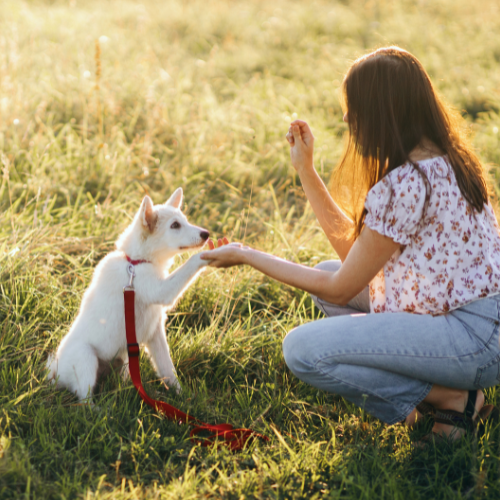
The Hidden Dangers of Worm Infestations: How Worms Can Affect Your Dog’s Behavior
Worm infestations are not just a physical health issue for dogs; they can also significantly impact your dog’s behavior. Understanding these changes can help you detect an infestation early and seek timely treatment. Let's explore how worms can affect your dog's behavior and what signs to look out for.
Behavioral Changes Caused by Worm Infestations
- Increased Irritability: Worms can cause significant discomfort and pain, leading to irritability and even aggression in dogs. If your normally calm dog becomes unusually snappy or restless, it might be due to an underlying worm infestation.
- Lethargy and Fatigue: Dogs with worms often experience fatigue due to nutrient depletion. If your dog is unusually tired and shows little interest in activities they once enjoyed, it could be a sign of worms.
- Changes in Appetite: Worms can affect a dog's appetite in two ways. Some dogs may become ravenous as the worms consume their nutrients, while others might lose their appetite due to nausea or discomfort.
- Scooting and Excessive Licking: Dogs infested with worms, particularly tapeworms, may drag their bottoms on the ground (scooting) or excessively lick their anal area. This behavior is an attempt to alleviate the irritation caused by the worms.
- Vomiting and Diarrhea: While these are physical symptoms, they also affect behavior. Dogs might become anxious or distressed when dealing with frequent vomiting or diarrhea.
Detecting Behavioral Changes
- Monitoring your dog's behavior closely can help you detect early signs of a worm infestation. Keep an eye on:
- Changes in Social Behavior: Increased isolation or seeking constant comfort.
- Altered Play Patterns: Reduced playfulness or reluctance to exercise.
Unusual Eating Habits: Sudden changes in eating behavior, whether an increase or decrease in appetite.
What to Do if You Notice Behavioral Changes
- Consult Your Vet: If you observe any of the mentioned behavioral changes, schedule a visit with your veterinarian. A fecal exam can determine if worms are the cause.
- Follow Treatment Plans: If worms are diagnosed, follow your vet’s treatment plan diligently. This often includes administering deworming medications and ensuring a clean environment.
- Provide Comfort: Offer your dog extra comfort and care during their treatment and recovery period. A comfortable, stress-free environment can aid their recovery.
- Prevent Future Infestations: Regular deworming, maintaining good hygiene, and controlling fleas are essential steps in preventing future worm infestations.
Worm infestations can have a profound impact on your dog’s behavior, indicating the need for timely intervention and treatment. By recognizing the behavioral signs and seeking veterinary care, you can ensure your dog remains healthy and happy. Stay vigilant and proactive to protect your furry friend from the hidden dangers of worms.


